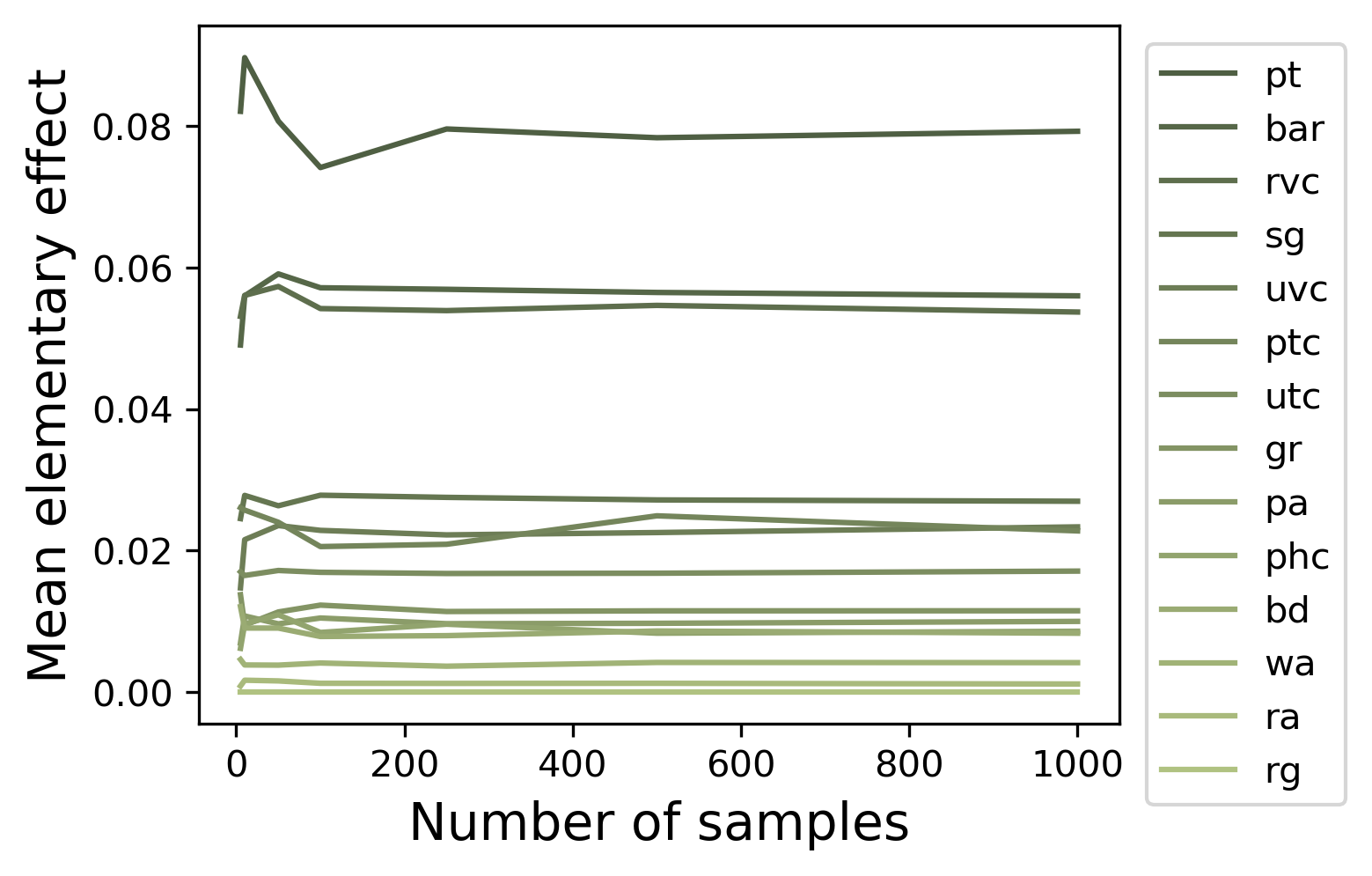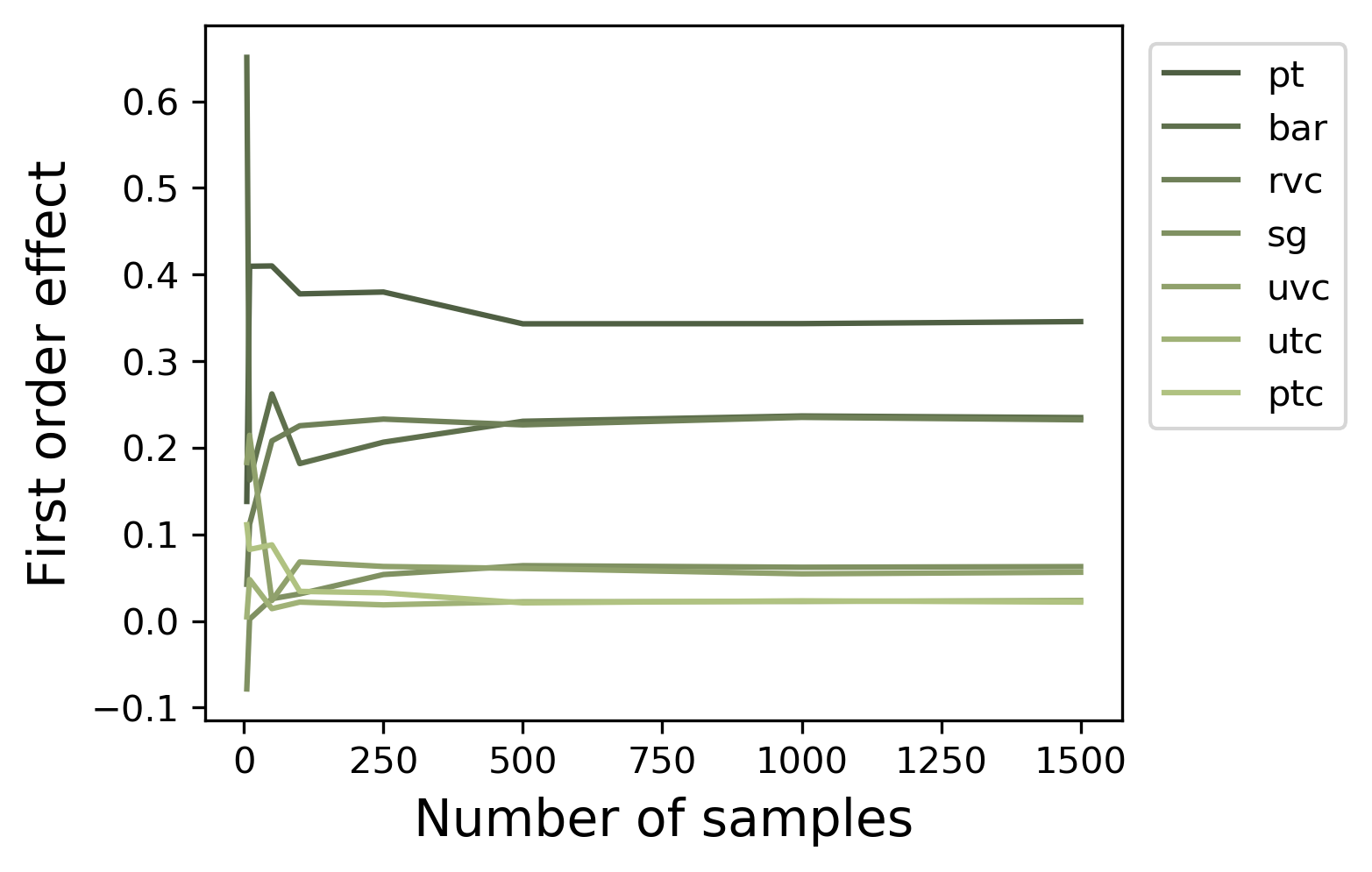As of 2020, dozens of models exist for studying the impact of urban landscapes on the Urban Heat Island effect, though many exceed the budget and computing capacities available to designers or city governments. Applying a methodology for using MIT's Urban Weather Generator, we projected parameters for the proposed Pine Hall development in State College, Pennsylvania and assessed the relative impact of each on urban heat island effects. This preliminary study is planned to be reapplied across other climate regions, urban conditions, and densities to create a heirarchy of urban heat island mitigation strategies.
Research conducted in Summer 2020 under the supervision of Dr. Gregory Pavlak and Farzad Hashemi. Funding provided by the National Science Foundation through Penn State University's Drawdown Fellowships.

Morris Mean Elementary Effect Analysis, filtering variables

